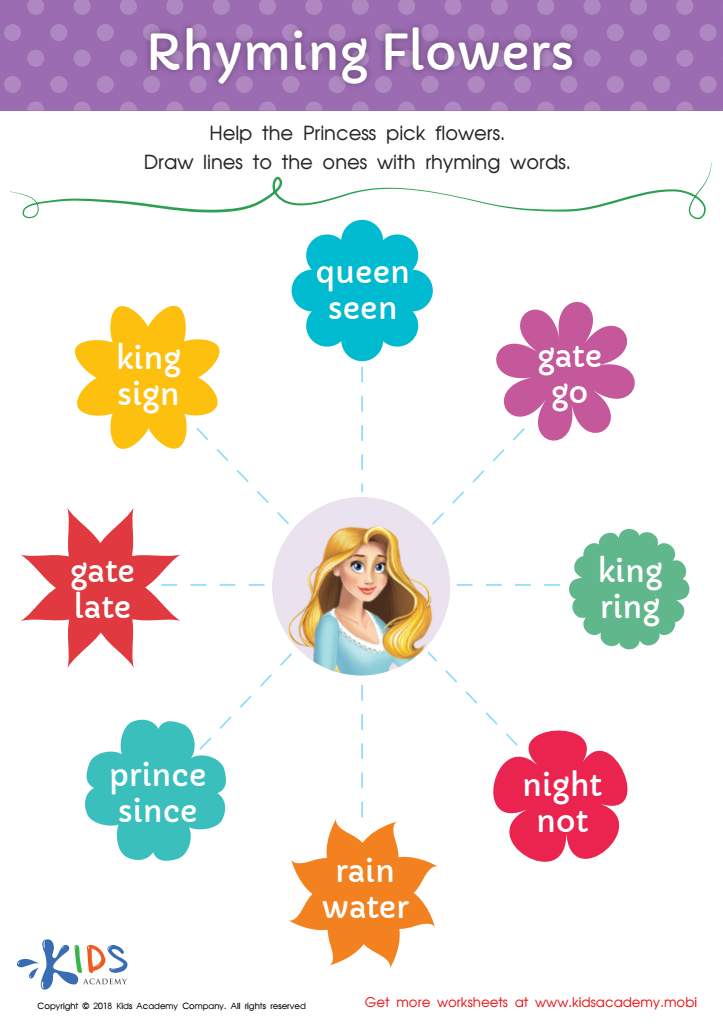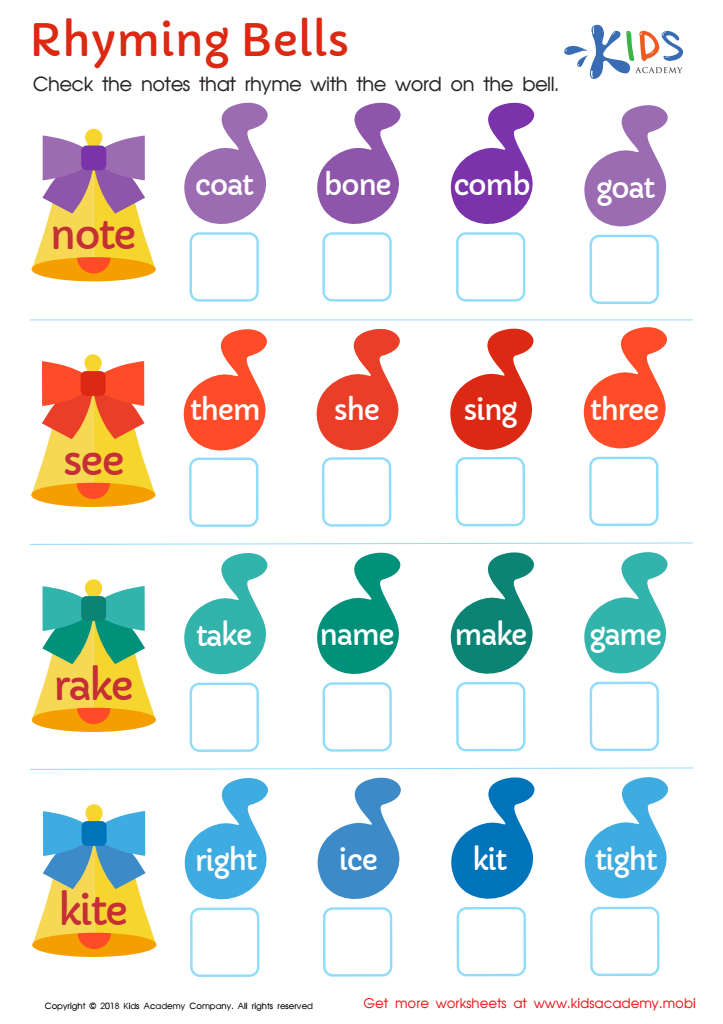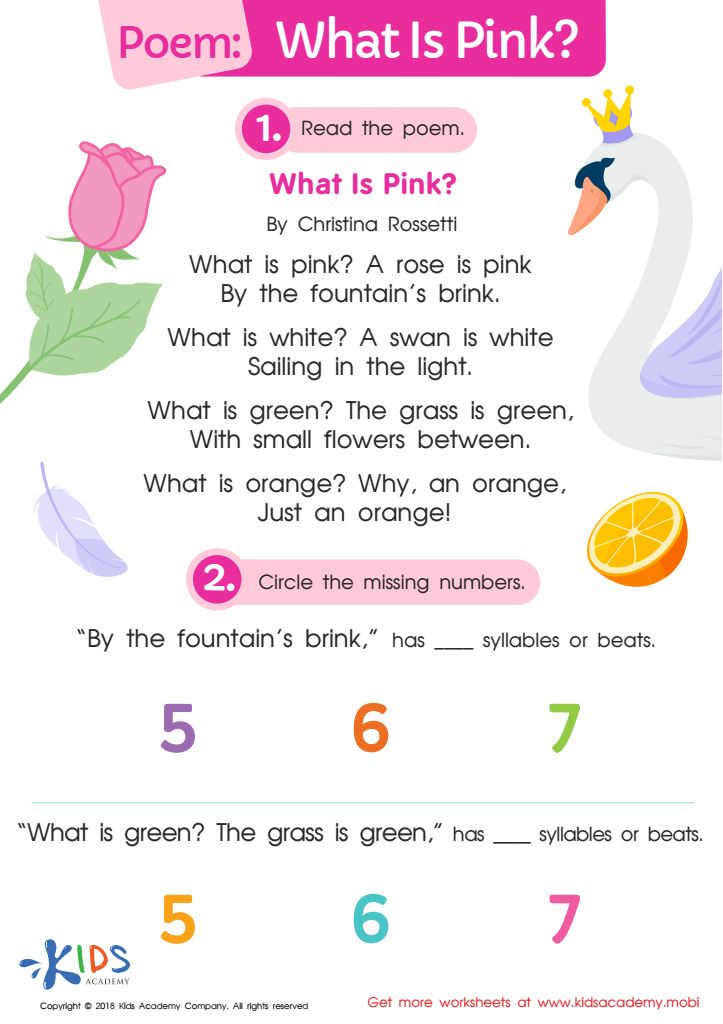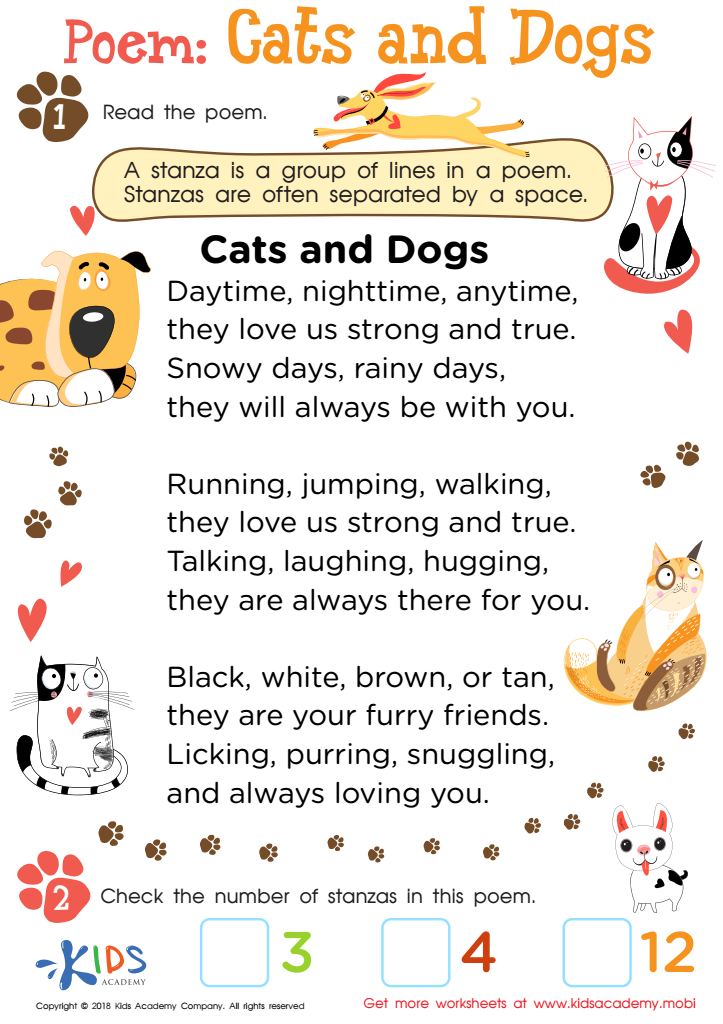Vocabulary enhancement Normal Rhyming Worksheets for Ages 3-9
8 filtered results
-
From - To
Boost your child's language skills with Vocabulary Enhancement Normal Rhyming Worksheets for Ages 3-9! Our engaging worksheets are designed to make learning fun and effective for young learners. Children will improve their vocabulary by discovering words that rhyme, fostering both phonetic awareness and creative thinking. Ideal for early grade students, these worksheets cater to different learning paces with colorful and interactive activities. Whether your child is just starting to explore words or is ready to expand their language capabilities, these rhyming exercises provide a strong foundation for lifelong literacy. Download now and set your child on the path to vocabulary success!


Rhyming Words: Assessment Worksheet


Rhyming Flowers Worksheet


Rhyming Words Rhyming Worksheet


Rhyming Bells Worksheet


First Words: Picture Rhymes Worksheet


Poem: What Is Pink? Worksheet


Poem: Cats and Dogs Worksheet
Vocabulary enhancement through rhyming activities is crucial for ages 3-9 because it lays the foundation for effective communication and reading skills. Children in this age group are at a critical stage of language development, where their brains are incredibly receptive to new words and sounds. Engaging them in rhyming activities not only makes learning fun but also improves their ability to recognize word patterns and sounds, which is essential for phonemic awareness.
Phonemic awareness is a key predictor of future reading success. When children understand how sounds work together in a language, they become better readers and writers. Rhymes make this process enjoyable and memorable, which means children are more likely to grasp these fundamental language skills. Additionally, a rich vocabulary helps children express themselves more clearly and effectively, boosting their confidence both in the classroom and in social situations.
For parents and teachers, fostering a love for words through rhyming can lead to improved literacy outcomes and a lifelong passion for learning. Storytime, singing songs, and engaging in playful rhyming games can seamlessly integrate into daily routines. These activities not only bolster language skills but also create positive bonding experiences between children and adults, making vocabulary enhancement a pivotal part of early childhood education.
 Assign to My Students
Assign to My Students













